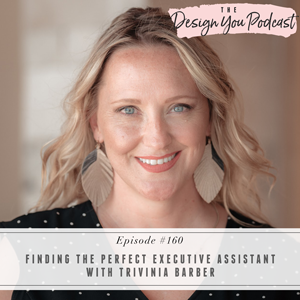
I recently hired a new assistant, and it was such an incredible process that I wanted to bring the CEO of the company I worked with onto the show this week to help you find the perfect assistant for your team. If you’ve been feeling overworked and overwhelmed and like your to-do list is running your life, finding the right support team could make a huge difference.
Trivinia Barber is an unfiltered, take-charge entrepreneur who isn’t afraid to tell it like it is in life and business. Her passion for honesty is fueled by a deep desire to impact the lives of the clients she serves as CEO of Priority VA. She’s here to share why knowing ourselves and being unfiltered enables us to get the help we need in life and business.
Join us this week and hear how Priority VA matches executive assistants to CEOs and business owners, and why being real about who you are will attract team members that are aligned with your needs. We discuss the importance of being authentic and why getting help in your business creates space for you to do the work you love.
If you want help creating a business with thriving revenue streams so that you can design the life you really want this year, now is your chance! We’re going to be opening the doors to the Design You Coaching Program really soon, get on our waitlist now!





